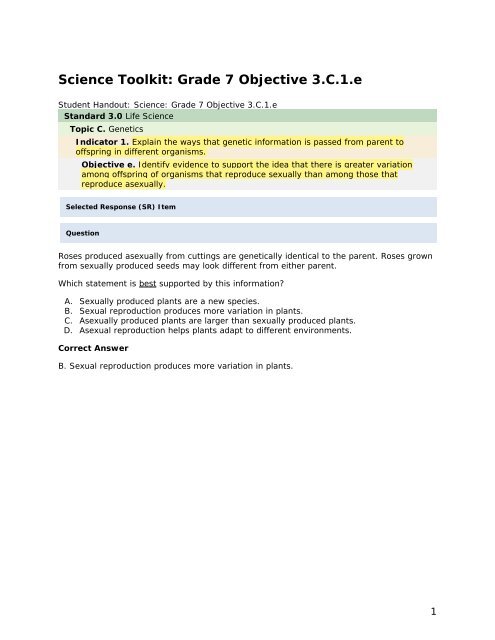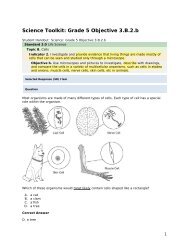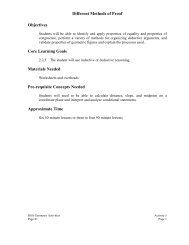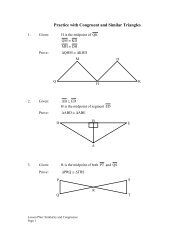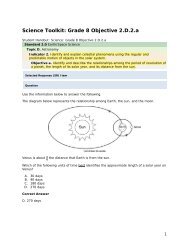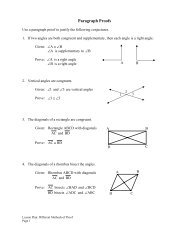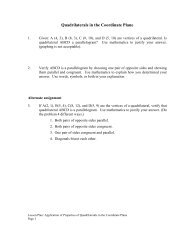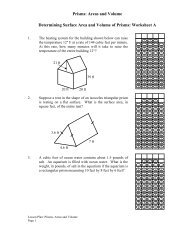Science grade 7 3.C.1.e - mdk12
Science grade 7 3.C.1.e - mdk12
Science grade 7 3.C.1.e - mdk12
You also want an ePaper? Increase the reach of your titles
YUMPU automatically turns print PDFs into web optimized ePapers that Google loves.
<strong>Science</strong> Toolkit: Grade 7 Objective <strong>3.C.1.e</strong><br />
Student Handout: <strong>Science</strong>: Grade 7 Objective <strong>3.C.1.e</strong><br />
Standard 3.0 Life <strong>Science</strong><br />
Topic C. Genetics<br />
Indicator 1. Explain the ways that genetic information is passed from parent to<br />
offspring in different organisms.<br />
Objective e. Identify evidence to support the idea that there is greater variation<br />
among offspring of organisms that reproduce sexually than among those that<br />
reproduce asexually.<br />
Selected Response (SR) Item<br />
Question<br />
Roses produced asexually from cuttings are genetically identical to the parent. Roses grown<br />
from sexually produced seeds may look different from either parent.<br />
Which statement is best supported by this information?<br />
A. Sexually produced plants are a new species.<br />
B. Sexual reproduction produces more variation in plants.<br />
C. Asexually produced plants are larger than sexually produced plants.<br />
D. Asexual reproduction helps plants adapt to different environments.<br />
Correct Answer<br />
B. Sexual reproduction produces more variation in plants.<br />
1
<strong>Science</strong> Toolkit: Grade 7 Objective <strong>3.C.1.e</strong><br />
Question<br />
Roses produced asexually from cuttings are genetically identical to the parent. Roses grown<br />
from sexually produced seeds may look different from either parent.<br />
Which statement is best supported by this information?<br />
A. Sexually produced plants are a new species.<br />
B. Sexual reproduction produces more variation in plants.<br />
C. Asexually produced plants are larger than sexually produced plants.<br />
D. Asexual reproduction helps plants adapt to different environments.<br />
2


